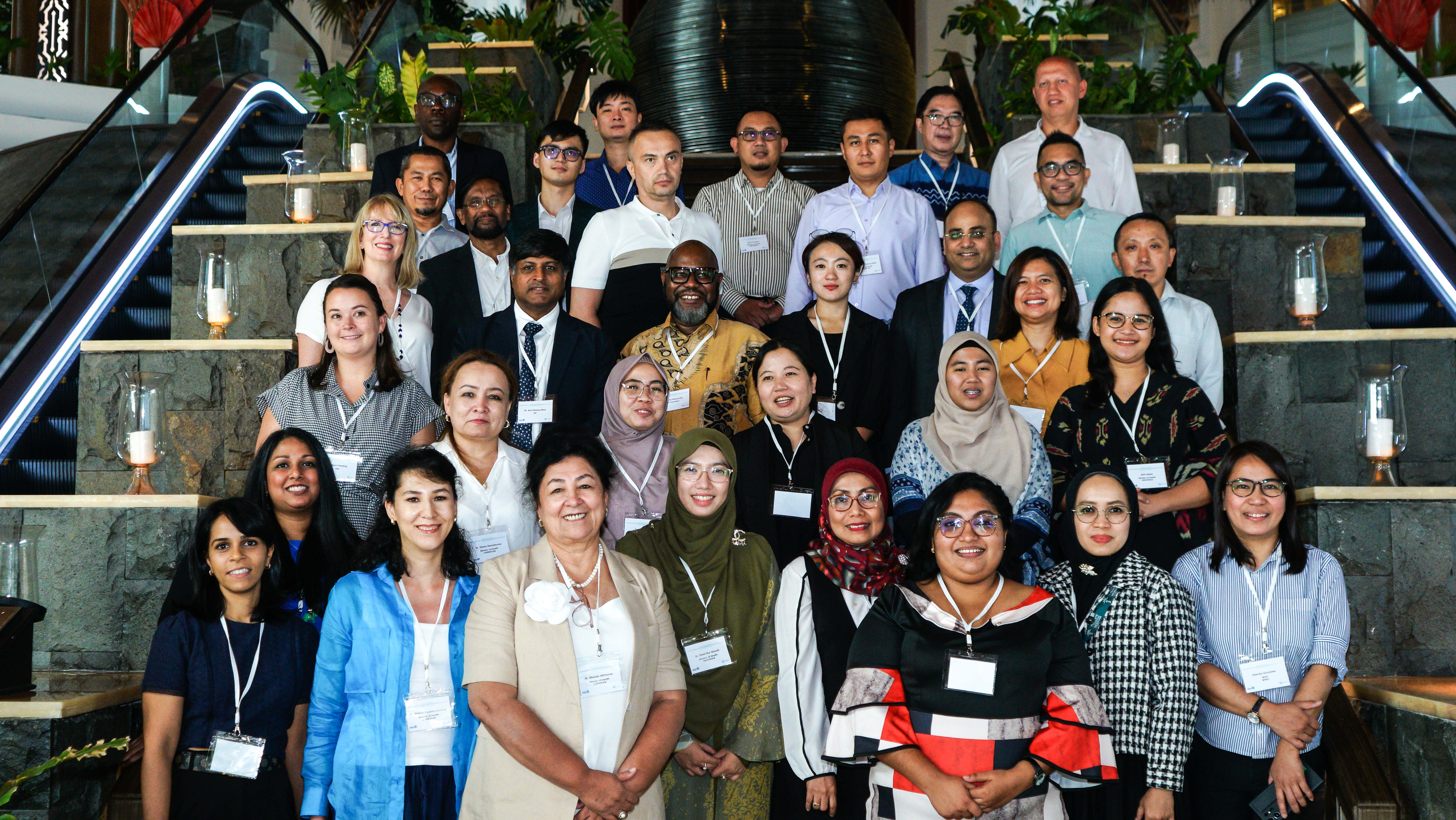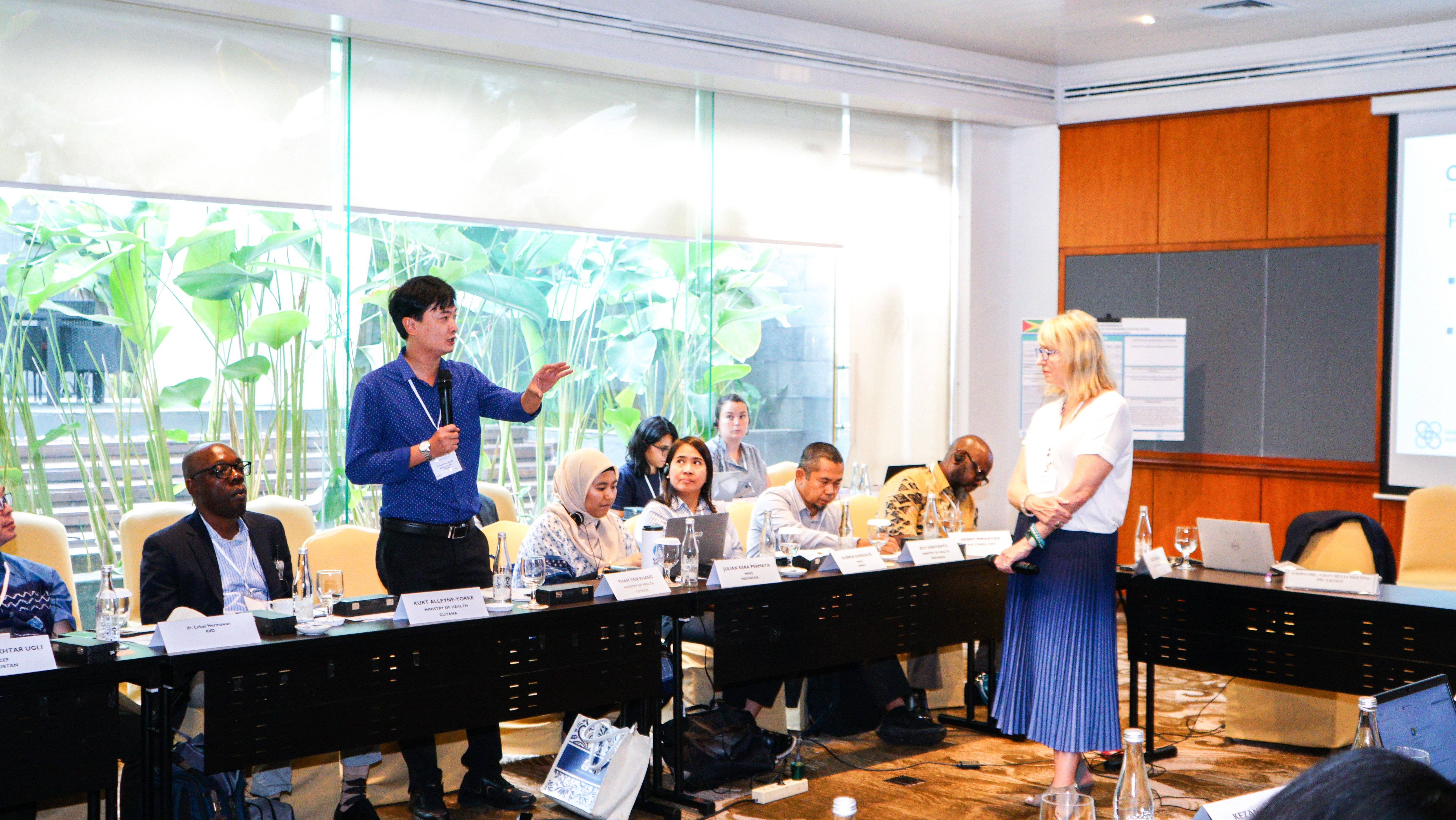From July 23-25, Ministry of Health delegations from Bhutan, Indonesia, Guyana, Uzbekistan, Vietnam gathered in Indonesia for a Linked Immunisation Action Network (Linked) meeting organised by the Institute for Health Policy (IHP) with logistical support from Results for Development (R4D) and facilitation support from EIR experts Kate Wilson and Henry Mwanyika and regional and country partners (e.g., UNICEF, WHO, and World Bank).

The workshop objectives were to
-
Understand the participant country’s EIR system status, challenges, and successes.
-
Provide a platform for countries to showcase their EIR systems, discuss future plans, and receive peer feedback.
-
Facilitate experience-sharing through guided interactive discussions, with a focus on solutions being tried, suggestions from experience, and practical ways to adapt these approaches.
-
Observe Indonesia's EIR and plans in practice through a field visit.
-
Enable participants to develop plans to adapt and apply new learnings to improve immunisation outcomes in the near to medium term.
The workshop had only one hour of “formal presentations”, and the bulk of the 3 days was focused on collaborative learning facilitated by the EIR consultants and IHP and R4D teams. The workshop started with a “country walk” where participants shared their country EIR stories and challenges in 1:1 sessions using pre-developed country posters. In the afternoon, delegates reflected on the country walk to identify priority topics and, in doing so, co-designed the workshop agenda. Based on the first priority topic – data management with a focus on practical challenges (e.g., internet connectivity) – the group moved to a brainstorming session led by the Guyana delegation.
On the first half of the day, the group visited local health centres or "puskesmas" to understand how data is collected and analysed in the Indonesia EIR, with a focus on their ASIK, SMILE, and SatuSehat applications to improve immunisation coverage and their outreach processes to reach zero-dose children. Participants also visited an immunisation service room to observe the data entry process, the healthcare centres’ vaccine storage to observe how immunisation supply management and logistics are integrated with their EIR app, and heard testimonials from mothers' regarding their experiences using the immunisation app for citizens. The teams then returned to the formal workshop, where they shared their impressions and discussed best practices that countries could implement and how these might be adapted, as well as country suggestions for the Indonesian system.

The final day featured parallel brainstorming sessions where individuals could chose their focus areas. Group one focused on information, communication, and technology and technical aspects of EIRs, including system interoperability, data standards, unique identifiers, and enterprise architectures. Group two focused on data quality, enhancing data capacity at each level of the health system, and a debate on how quickly one can/should transition from paper to digital systems. Following this morning session, the group spent the afternoon in country action planning. The action plans were developed with the support of partners, who encouraged country delegations to identify realistic and tangible activities and outcomes; each country presented their action plan for peer feedback.
Key topics discussed during the workshop include.
-
Interoperability of EIRs with other health and non-health systems and the "how to" of implementing this, including different strategies and discussions on the required collaboration.
-
Unique identifiers, including the various options, workarounds, and their importance in terms of ensuring data quality and completeness, reducing data duplication, ensuring complete registration to reach zero-dose children, and problems around including children immediately after birth when national identifiers may not have been issued.
-
Challenges in getting healthcare workers and private providers to enter data or use the EIR system, including issues of low-level IT literacy among healthcare workers.
-
Data quality and protection and how this is crucial to stakeholder and public buy-in.
-
How to efficiently use EIR data to improve immunisation programs.
To learn more about the workshop, please refer to this learning resource: https://www.linkedimmunisation.org/resources/linked-brief-sharing-eir-experiences-to-strengthen-immunisation-programming-for-the-future-key-takeaways-from-a-linked-workshop-held-from-23-25-july-2024/ or you can use the pdf link.

